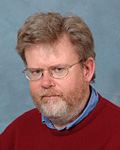Ch.2: ‘The God Hypothesis’
Dawkins writes a lot about the ‘Great Prayer Experiment’ – a scientific study designed to test the efficacy of intercessory prayer. The experiment’s results did not show any efficacy. Dawkins, expreses a good deal of distaste about the whole thing. Fair enough.
He asks, however, whether, had the experiment instead proved the efficacy of intercessory prayer, ‘a single religious apologist would have dismissed it on the grounds that scientific research has no bearing on religious matters? Of course not.’ (90) Whereas the right answer is ‘Of course!’ I can think of all sorts of Christian thinkers who would have rejected it. There’s a debate in Christian theology on precisely this issue – a debate whose varying sides all argue on terms that make some sense within the Christian tradition, some of them just as fervently attached to the view of prayer assumed by the experiment as Dawkins’ targets, some at least as dismissive of it as Dawkins himself.
Dawkins does admit that there are some theologians who have rejected the whole basis of the experiment. He discusses Richard Swinburne again, as if he were a representative of Christian theology in general (he’s not; he’s really not!). And he notes that an American religious leader, Raymond Lawrence, was granted a ‘generous tranche of op-ed space in the New York Times‘ to reflect on the negative results of the intercessory prayer experiment. In the space of a few lines, he manages to insinuate (without evidence) that Lawrence is a hypocrite (he disowned the study only ‘after it failed’; ‘Would he have sung a different tune if the … study had succeeded…? Maybe not, but…’ – and then the quote I gave above, a paragraph later, which decisively erases the ‘maybe not’. Dawkins tells us nothing about the arguments Lawrence used – simply mining his article for one quoted story about a distasteful incident – leaving the reader to guess whether Lawrence approved or disapproved of the incident (he disapproved, by the way).
It’s hard to avoid, some of the time, the sense that Dawkins believes that anyone who disagrees with him on this sort of topic simply must be both stupid and dishonest. It’s even harder to avoid, a lot of the time, the sense that Dawkins is simply blithely unaware that there are long-standing, complex, varied, and robust ongoing arguments within mainstream religious traditions, about many of the topics he touches on – and that the criticisms he launches against religion are often rather facile echoes of criticisms made within the religious traditions themselves.

 Today, theology is tragically too important. For all current talk of a theology that would reflect on practice, the truth is that we remain uncertain as to where today to locate true Christian practice. This would be, as it has always been, a repetition differently but authentically, of what has always been done. In his or her uncertainty as to where to find this, the theologian feels almost that the entire ecclesial task falls on his own head: in the meagre mode of reflective words, he must seek to imagine what a true practical repetition would be like. Or at least he must hope that his merely theoretical continuation of the tradition will open up a space for wider transformation.
Today, theology is tragically too important. For all current talk of a theology that would reflect on practice, the truth is that we remain uncertain as to where today to locate true Christian practice. This would be, as it has always been, a repetition differently but authentically, of what has always been done. In his or her uncertainty as to where to find this, the theologian feels almost that the entire ecclesial task falls on his own head: in the meagre mode of reflective words, he must seek to imagine what a true practical repetition would be like. Or at least he must hope that his merely theoretical continuation of the tradition will open up a space for wider transformation.
Recent Comments